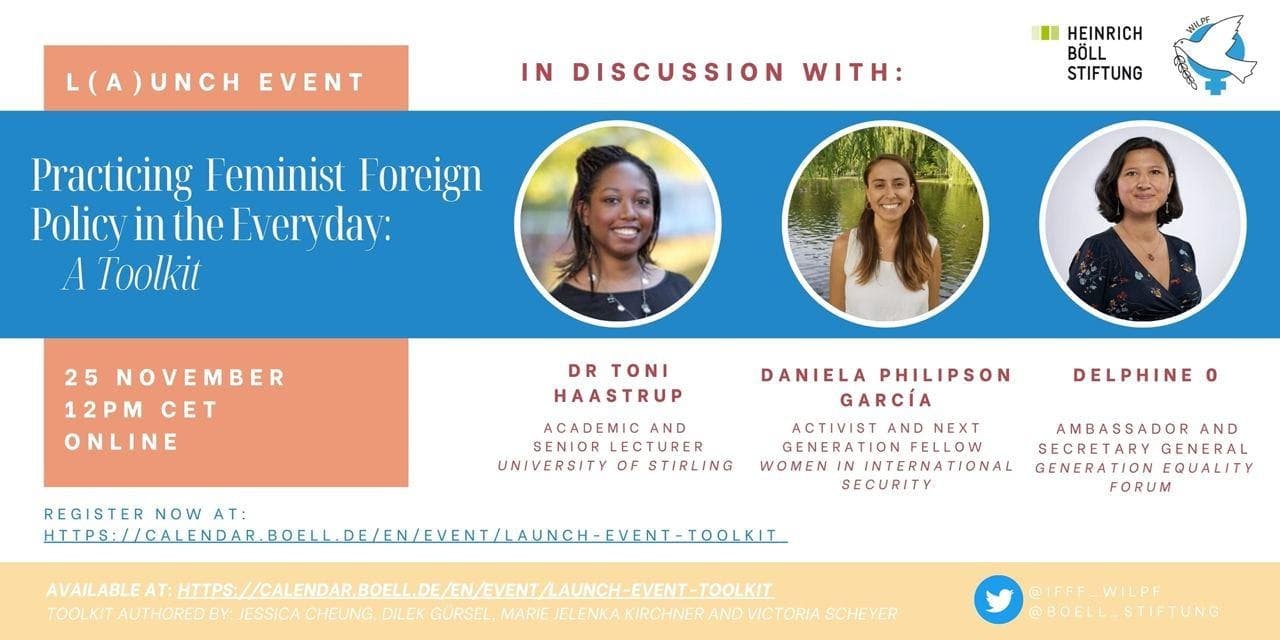We invite you to join the l(a)unch event of the latest publication “Practicing Feminist Foreign Policy in the Everyday: A Toolkit” published by WILPF Germany in cooperation with the Heinrich Böll Foundation. The event will take place in English.
Programme:
After a brief presentation of the idea behind the toolkit, the three distinguished experts on feminist foreign policy from different sectors and regional backgrounds Daniela Phillipson, Toni Haastrup and Delphine O, will join the authors for a critical discussion on the challenges and ways forward for feminist foreign policy across different contexts.
During the event, the audience will have the opportunity to ask questions to both the authors and speakers on issues relating to the Toolkit and feminist foreign policy more broadly. This collaborative event has been organised with a view towards enhancing the discussion on the possibilities of feminist foreign policy in the practice of everyday policy making. Feminist perspectives and voices in international politics on issues relating to foreign policy, international security and war are growing louder as a source and site of discursive political action and policy transformation. In contribution to there sites of political action and transformation, WILPF Germany launched a toolkit on feminist foreign policy.
The Toolkit presented here is not a collection of legal frameworks or policy instruments, nor is it a set of specific recommendations on how to facilitate legal change or how to write a policy proposal. Rather, it serves to inspire the creation of feminist- inspired policy-making that can be filled by a variety of voices, experiences and actors. This does not mean that we are presenting a hollow shell, instead it is our aim to bring forward a value-based framework to change mindsets and enable a feminist approach to foreign policy that works to support different contexts. Our toolkit begins by outlining five core values that function as a guide instead of prescribing a feminist foreign policy. It then reviews relevant policy fields and presents a framework on how the proposed core values can be implemented. Finally, it provides a set of practical guiding questions – what we propose as a checklist for all foreign policy actors – that can be used to frame and assist in everyday practices of policy and decision making.

